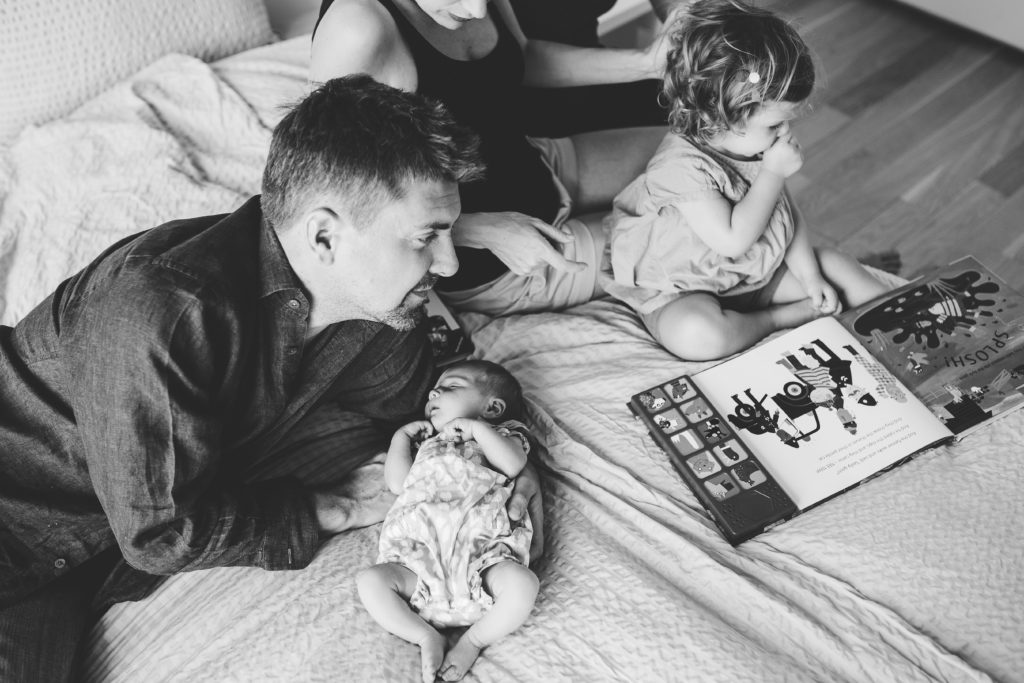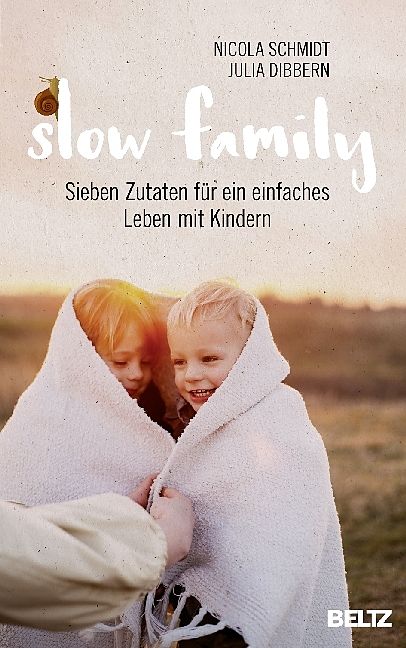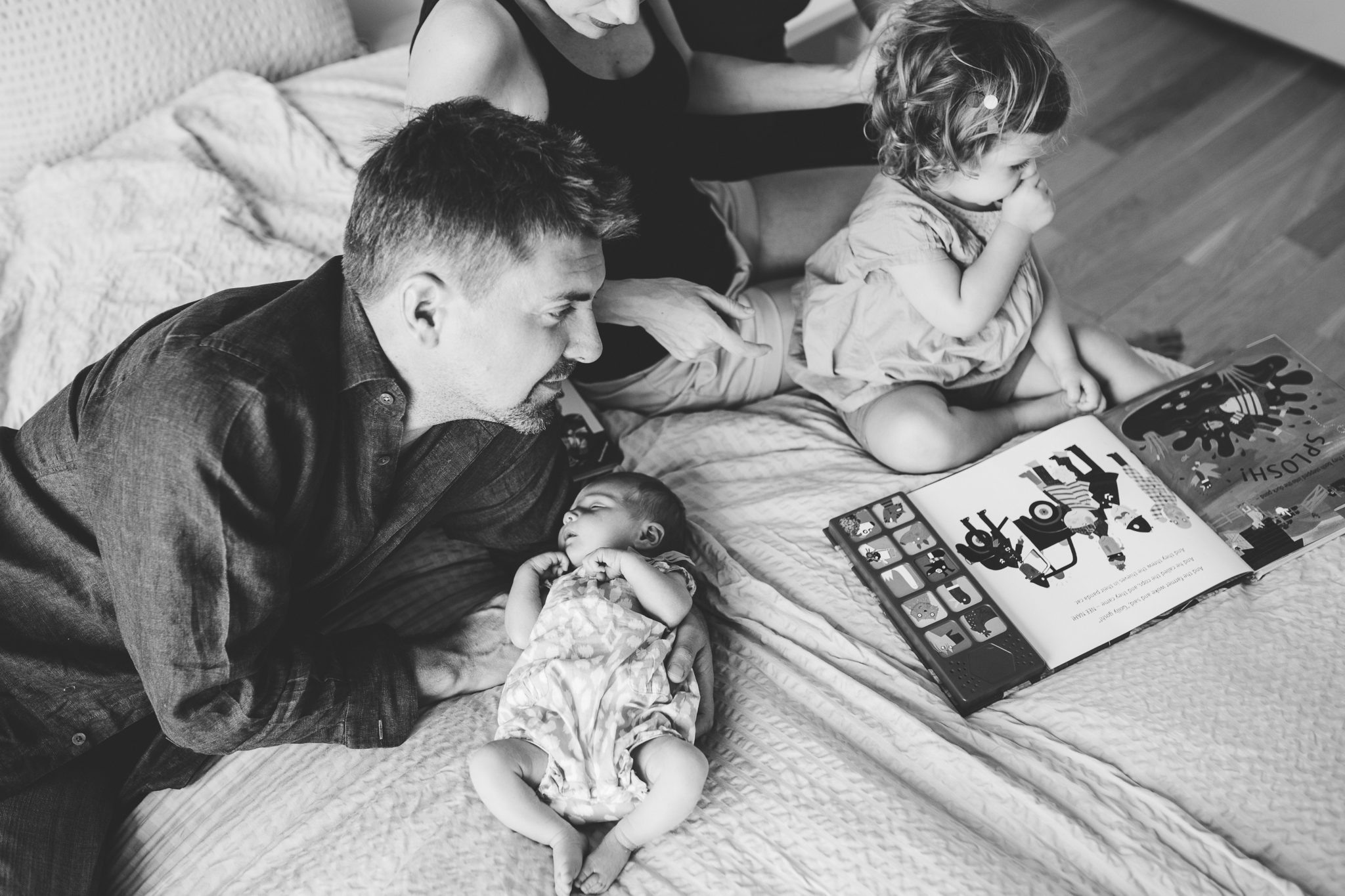After slow food, the slow family?
Slow food is in everyone’s mouth at the moment – both as phrase and as food. If you have taste and a sense of conscience, then you eat and cook conscientiously. The Slow Food movement has, however, long since stopped just standing at the stove. It made the leap from the kitchen into the big world where it spawned a little sister: the slow family.
The instructions to make a slow family are simple: Take a few kids, mix them well with a handful of select ingredients, and tada! Here it is: simple, happy family life. This is exactly what the book Slow Family – Sieben Zutaten für ein einfaches Leben mit Kindern (Slow Family – Seven Ingredients for a Simple Life with Children) promises. While the 21st century is milling about at a frantic pace, the book proclaims the discovery of slowness, of family deceleration – a phrase that makes you think of a relaxing stay at a spa rather than hectic family and professional life. Even after reading Slow Family, I still wondered: Is it even possible to slow down and decelerate on an ongoing basis and to do so between chickenpox, staff meetings, and your child’s birthday?
Is giving the system the finger the solution?
The two authors, Julia Dibbern and Nicola Schmidt, react to my question with a surprisingly honest no. “Because happiness isn’t an ongoing feeling,” says Nicola Schmidt. “Neither is deceleration. Our ancestors also had to pack everything up at times with frantic speed and flee the weather. It isn’t about that. It’s about always reaching this point, about always finding peace.” Julia Dibbern adds: “In the book, we call it the ‘every-day-a-little-bit’ effect. Every day, let’s make it a point to give ourselves some breaks, to slow down and be present for one another. To breastfeed or bottle-feed your baby without looking at your cell phone, but instead, look at your child, communicate. Play with Legos and have fun watching your child construct a tall tower – all without a computer or smartphone next to you, so you don’t get the urge to quickly check email. This also has something to do with making conscious decisions about living in the present moment: slow, careful, real.”
Maintaining this slow family approach isn’t always easy – not for the authors either: “There was a time when we had both reached our absolute limit. We worked around the clock, seven days a week. At some point, we realized that our kids’ only image of us was with computers in front of our noses. We didn’t want that. Our first step was to decide that we weren’t going to call each other on weekends. Then we implemented a screen-free day for the family on weekends. And evenings are reserved for family and not for completing some looming deadline.” Regardless of how great the workload or the family obligations, the two women explain, the focus is always on the same questions: Does this make us happy? And why do we do it? Their conclusion is clear: “It takes a lot of courage to sometimes give this system the finger and say: Do this thing without me today. But it’s doable.”

It is about setting clear priorities and making time for home life: the slow family. (Photo: Kerry Cheah)
You can do a lot – just not all at the same time
And it is this very doability that’s so amazing. Book author Nicola Schmidt is a journalist and entrepreneur. She’s also the founder of a project called Artgerecht, which organizes wilderness camps for parents and children. Moreover, she’s an educational pioneer, a social media expert, a family woman, and a mother. With so many commitments and obligations, where does the “slow family” fit in? Is it really a realistic approach or just the latest trend that will sell well? “I figured out that you can do a lot – just not all at the same time. I run the Artgerecht camp in summer, write books in winter, and otherwise I give social media seminars for days on end, and on other days I write articles. My year is split up among all these roles. My days are too: I write in the morning, then make phone calls, have the kids in the afternoon, and do the bookkeeping in the evening or actually at night! I have only been able to enjoy living in the present moment, since I realized that I don’t have to be perfect anymore; since I accepted the fact that sometimes I have to miss a deadline or be late, or that it’s okay that I forgot something, because sitting at the campfire, reading aloud to my kids or my afternoon nap simply had priority.
Published on June 13, 2017 in the newspaper, Tages-Anzeiger.



